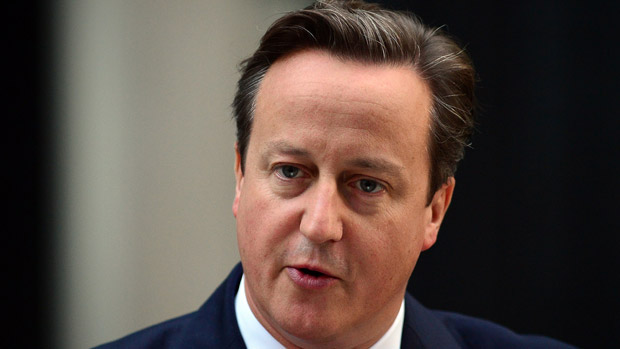David Cameron in security talks after Paris terror attacks
Prime Minister says UK must confront 'poisonous narrative of Islamist extremism wherever we find it'

A free daily email with the biggest news stories of the day – and the best features from TheWeek.com
You are now subscribed
Your newsletter sign-up was successful
David Cameron is holding talks with senior intelligence and security officials today in the wake of last week's deadly attacks in Paris that left 17 people dead.
The three perpetrators Said and Cherif Kouachi and Amedy Coulibaly, who had a history of extremism, were shot dead on Friday following an attack on the offices of satirical magazine Charlie Hebdo and two separate sieges.
The prime minister, who travelled to the French capital to join millions of people for a unity march against terrorism, has said that the UK faces a "very similar threat" from fanatical extremism.
The Week
Escape your echo chamber. Get the facts behind the news, plus analysis from multiple perspectives.

Sign up for The Week's Free Newsletters
From our morning news briefing to a weekly Good News Newsletter, get the best of The Week delivered directly to your inbox.
From our morning news briefing to a weekly Good News Newsletter, get the best of The Week delivered directly to your inbox.
In a broadcast interview ahead of the rally, he said: "There's always things to learn and it's always important to look at what happened in France and think through those scenarios and other scenarios like them: how we'd respond, how well prepared we are."
The prime minister said he would be addressing these questions at the security meeting today to ensure that the UK is as prepared as it can be to deal with such a threat.
He added that success would mean investing in security services, as well as "confronting the poisonous narrative of Islamist extremism wherever we find it".
The Tories have suggested they will revive plans for a communications data bill if they can secure an overall majority in May. The bill, dubbed the "snooper's charter", was blocked by the Liberal Democrats.
A free daily email with the biggest news stories of the day – and the best features from TheWeek.com
Cameron has said that rules on interception need to be modernised, but BBC assistant political editor Norman Smith says it is unlikely that any new legislation would be announced in the wake of the Paris attacks.
"The balance of parliamentary opinion at the moment is that we have already given the security services a lot of additional powers and resources," he says.
"Appalling and terrible though Paris was, I don't think that has fundamentally changed that political consensus."
Cameron will also fly to Washington for urgent security talks with US President Barack Obama later this week, while French President Francois Hollande was due to chair a crisis meeting with cabinet ministers on national security today.
-
 The ‘ravenous’ demand for Cornish minerals
The ‘ravenous’ demand for Cornish mineralsUnder the Radar Growing need for critical minerals to power tech has intensified ‘appetite’ for lithium, which could be a ‘huge boon’ for local economy
-
 Why are election experts taking Trump’s midterm threats seriously?
Why are election experts taking Trump’s midterm threats seriously?IN THE SPOTLIGHT As the president muses about polling place deployments and a centralized electoral system aimed at one-party control, lawmakers are taking this administration at its word
-
 ‘Restaurateurs have become millionaires’
‘Restaurateurs have become millionaires’Instant Opinion Opinion, comment and editorials of the day
-
 Epstein files topple law CEO, roil UK government
Epstein files topple law CEO, roil UK governmentSpeed Read Peter Mandelson, Britain’s former ambassador to the US, is caught up in the scandal
-
 Iran and US prepare to meet after skirmishes
Iran and US prepare to meet after skirmishesSpeed Read The incident comes amid heightened tensions in the Middle East
-
 Israel retrieves final hostage’s body from Gaza
Israel retrieves final hostage’s body from GazaSpeed Read The 24-year-old police officer was killed during the initial Hamas attack
-
 China’s Xi targets top general in growing purge
China’s Xi targets top general in growing purgeSpeed Read Zhang Youxia is being investigated over ‘grave violations’ of the law
-
 Panama and Canada are negotiating over a crucial copper mine
Panama and Canada are negotiating over a crucial copper mineIn the Spotlight Panama is set to make a final decision on the mine this summer
-
 Why Greenland’s natural resources are nearly impossible to mine
Why Greenland’s natural resources are nearly impossible to mineThe Explainer The country’s natural landscape makes the task extremely difficult
-
 Iran cuts internet as protests escalate
Iran cuts internet as protests escalateSpeed Reada Government buildings across the country have been set on fire
-
 US nabs ‘shadow’ tanker claimed by Russia
US nabs ‘shadow’ tanker claimed by RussiaSpeed Read The ship was one of two vessels seized by the US military